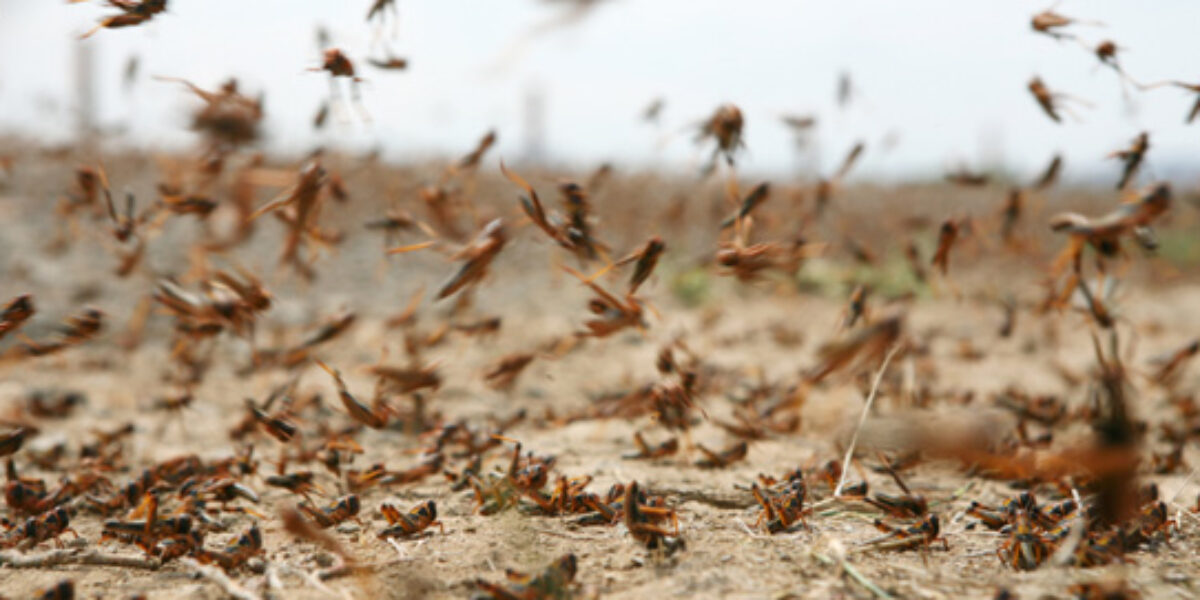John the Baptist ate them. God sent plagues of them on the land of Egypt. Read more about how this small insect made an important contribution to biblical history.
A locust is a kind of grasshopper that travels in swarms and causes great damage to crops and other plants. Because most of the ancient Near East, including Israel, was based on a farming and herding economy, an attack by locusts had very damaging effects. If locusts devoured all crops and plants, people and their animals could starve, and prices for any stored grain would be raised very high. If large numbers of locusts died, the rotting dead insects could lead to diseases like typhus in people already weakened from hunger, and could cause disease in animals too.
Locusts continue to be a problem in modern times. They hatch in fields where each female insect can lay hundreds of eggs that hatch and grow in four stages: the youngest “hopper” stage without wings; the “jumper” stage when wings begin to develop; the “biter” or “cutter” stage which describes the nearly full-grown locust; and finally the sexually mature stage. These adult locusts can fly great distances. Swarms of flying locusts can be huge. In 1881, workers in Cyprus tried to stop a locust swarm attack by digging up and destroying the locust eggs, which weighed a total of thirteen hundred tons. A swarm that was seen crossing the Red Sea in 1889 was estimated as having at least 120 million locusts and covered two thousand square miles.
It is easy to imagine, then, why the locust disaster (plague) that the Lord sent upon Egypt (Exod 10:4-19) was so horrible and why such swarms could actually block out the sun and seem to turn the day into night (Joel 2:10). Israel’s King Solomon prayed that the Lord would listen to his prayers during locust attacks (1 Kgs 8:37; 2 Chr 6:28). Because the devastation caused by locusts could be so great, the prophet Joel used such an attack as a way of describing the invasion of Israel by enemy soldiers (Joel 2:1-11). In the Bible, locust swarms are described as one way the Lord punishes those who have rejected him (Deut 28:36-42; Amos 4:9; 7:1).




